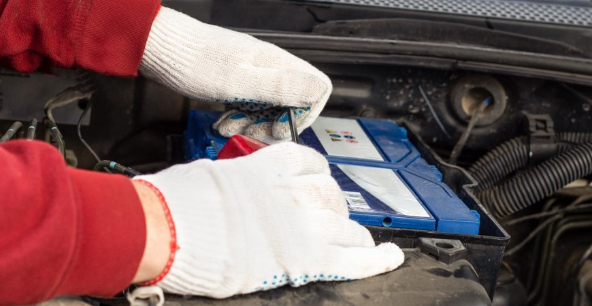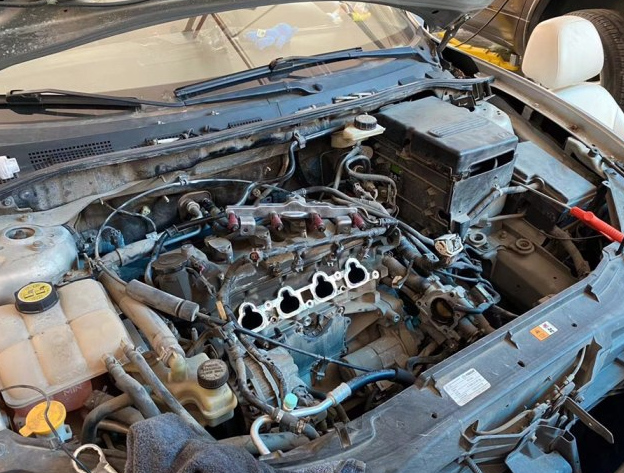I. Introduction
A. Definition of Knock Sensor Codes
A knock sensor code is a fault code that is generated when the vehicle's computer system (ECU) detects a problem related to the knock sensor. These codes usually come in the form of "P0325" or "P0330" and each code corresponds to a specific type of malfunction.
The main purpose of a knock sensor is to detect any abnormal vibration or "knock" during engine combustion. Ideally, the combustion process in an engine should be sequential, but if the combustion process starts too early or too late, this can lead to abnormal vibrations inside the engine, also known as "knock".
When detonation occurs, the detonation sensor sends a signal to the vehicle's computer system, which adjusts the engine's ignition timing to optimize the combustion process and avoid detonation. However, if the detonation sensor itself fails, or if there is a communication problem with the computer system, a detonation sensor code is generated.
These codes typically trigger the vehicle's "check engine" light to illuminate, alerting the driver to a possible problem with the vehicle. If these problems are not addressed in a timely manner, they can lead to engine damage, affecting the vehicle's performance and fuel efficiency.
Note: You may check out this article to deepen your knowledge on knock sensor code.
B. Role of Knock Sensor Code in a Vehicle
The role of the knock sensor code in a vehicle is primarily as a warning system used to alert the driver of a possible problem with the vehicle's engine.
- **Fault Detection**: When the vehicle's computer system (ECU) detects a problem related to the knock sensor, it generates a specific knock sensor code. This code can help identify the nature and possible cause of the problem.
- **WARNING SIGNAL**: Once a Blowout Sensor Code has been generated, the vehicle's Check Engine light will normally illuminate as a visible warning signal. This alerts the driver that there may be a problem with the vehicle that requires further inspection.
- **Maintenance and Repair**: By reading and parsing the detonation sensor code, the mechanic can more accurately determine the location and nature of the problem so that effective maintenance and repair can be performed. This can help avoid more serious engine problems and keep the vehicle running well.
- **Optimizing Performance**: Burst sensor codes can also help optimize vehicle performance. For example, by adjusting the ignition timing of the engine, detonation can be avoided, thus improving engine efficiency and performance.
Overall, detonation sensor codes are part of a vehicle's self-diagnostic and reporting system and are critical to maintaining the vehicle's operating condition and performance.
II. Common knock sensor codes
For knock sensor malfunctions, the vehicle's computer system generates some specific fault codes, here are some common knock sensor fault codes:
P0326: This code indicates that the ECM has detected an input error in the knock sensor circuit group 1, but this error has occurred under specific operating conditions.
P0330: This is a generic trouble code that indicates that the ECM has detected an input error to the burst sensor circuit group 2.
P0327: This code indicates that the ECM has detected a low input voltage to the burst sensor circuit group 1.
P0333: This code indicates that the Engine Control Module (ECM) has detected that the input signal to the circuit for the Burst Sensor Group 2 is too high.
III. Risks of ignoring knock sensor codes
There are a number of risks and potential problems that can be associated with ignoring a knock sensor code:
- **Engine Damage**: The purpose of the knock sensor is to detect and prevent engine knock, also known as premature combustion. If a faulty knock sensor is not repaired in a timely manner, it may lead to prolonged engine knock, which can cause serious engine damage.
- **Decrease in performance**: A faulty detonation sensor may affect the ignition time of the engine, leading to a decrease in engine performance, which is manifested as a lack of power, reduced acceleration, and so on.
- **Increased Fuel Consumption**: As a result of reduced engine performance, fuel consumption may increase, thereby increasing driving costs.
- **Vehicle overheating**: Constant engine popping may cause the vehicle to overheat, which can lead to a variety of other problems, including cooling system failure.
- **Vehicle won't start**: In some cases, a severe detonation sensor malfunction may cause the vehicle not to start.
Therefore, if your vehicle is displaying a fault code for a knock sensor, it should be inspected and repaired by a professional automotive technician as soon as possible to prevent more serious problems from occurring.







